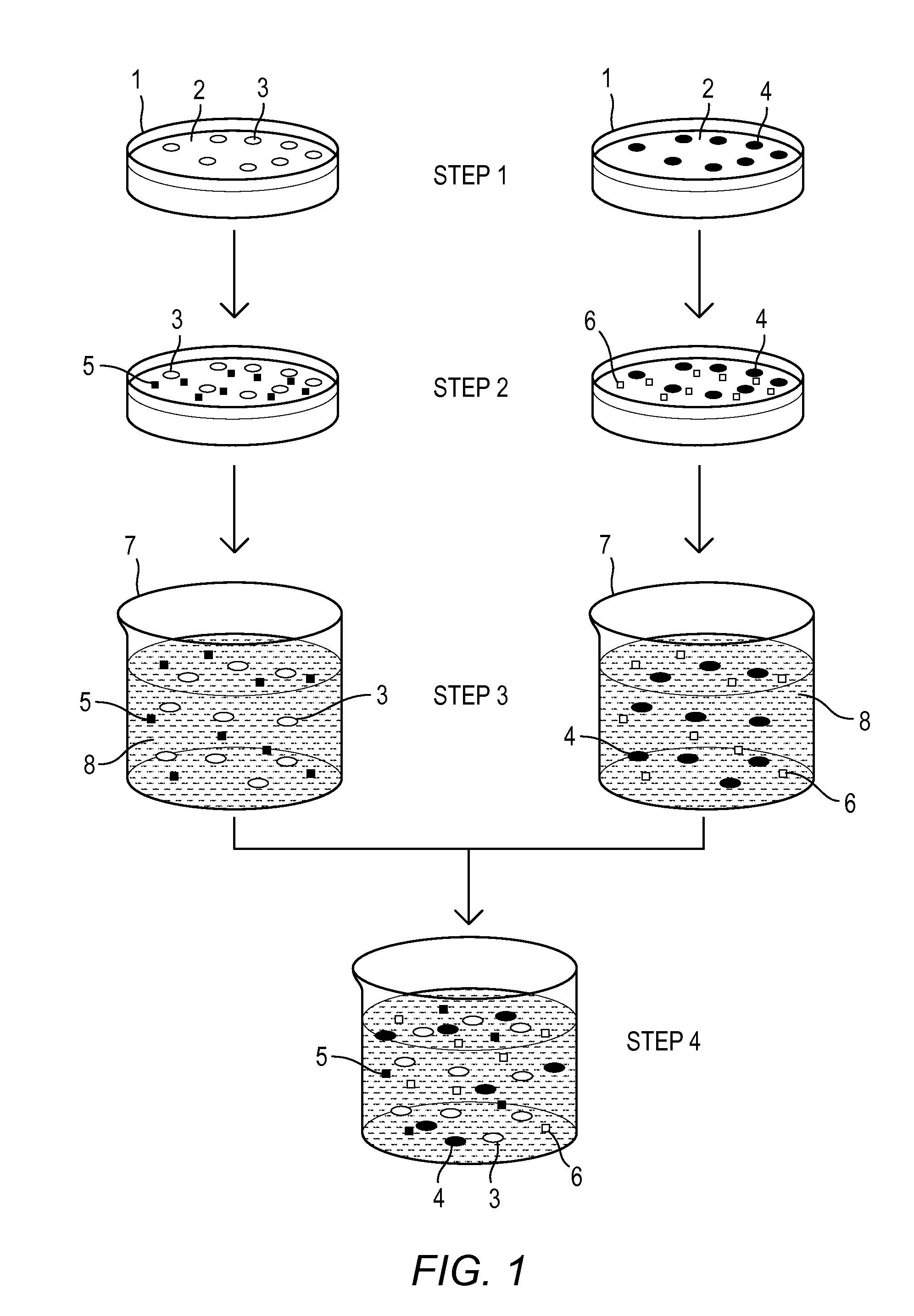Compositions derived from stem cell released molecules & methods for formulation thereof
- Summary
- Abstract
- Description
- Claims
- Application Information
AI Technical Summary
Benefits of technology
Problems solved by technology
Method used
Image
Examples
example 1
50 / 50 Composition of ADSC and HDF-f Derived SRM's in an Aqueous Suspension
[0061]In one example, a therapeutic composition for treatment of ocular surface disease includes about 50% SRM's derived from Human Adipose Derived Stem Cells (ADSC) and about 50% SRM's derived from Human Dermal Fibroblasts (HDF-f) by volume.
[0062]In accordance with embodiments of the invention, an amount of ADSC and an amount of HDF-f cell lines were individually provided in nutrient media and thawed in a water bath prior to sub culturing (passaging) in flasks. Upon reaching about 90% confluence, the respective SRM's were harvested. Here, a sterile pipette was used to remove medium containing the ADSC and SRM's from flasks and transferred to a 500 mL filter unit having a 0.33 uM pore size. Upon transfer of the medium, vacuum was applied and the SRM's were filtered into a receptacle. The SRM's were then aliquoted and stored in sterile containers for subsequent use.
[0063]Subsequent to removing SRM's from the AD...
PUM
| Property | Measurement | Unit |
|---|---|---|
| Therapeutic | aaaaa | aaaaa |
Abstract
Description
Claims
Application Information
 Login to View More
Login to View More - R&D
- Intellectual Property
- Life Sciences
- Materials
- Tech Scout
- Unparalleled Data Quality
- Higher Quality Content
- 60% Fewer Hallucinations
Browse by: Latest US Patents, China's latest patents, Technical Efficacy Thesaurus, Application Domain, Technology Topic, Popular Technical Reports.
© 2025 PatSnap. All rights reserved.Legal|Privacy policy|Modern Slavery Act Transparency Statement|Sitemap|About US| Contact US: help@patsnap.com

